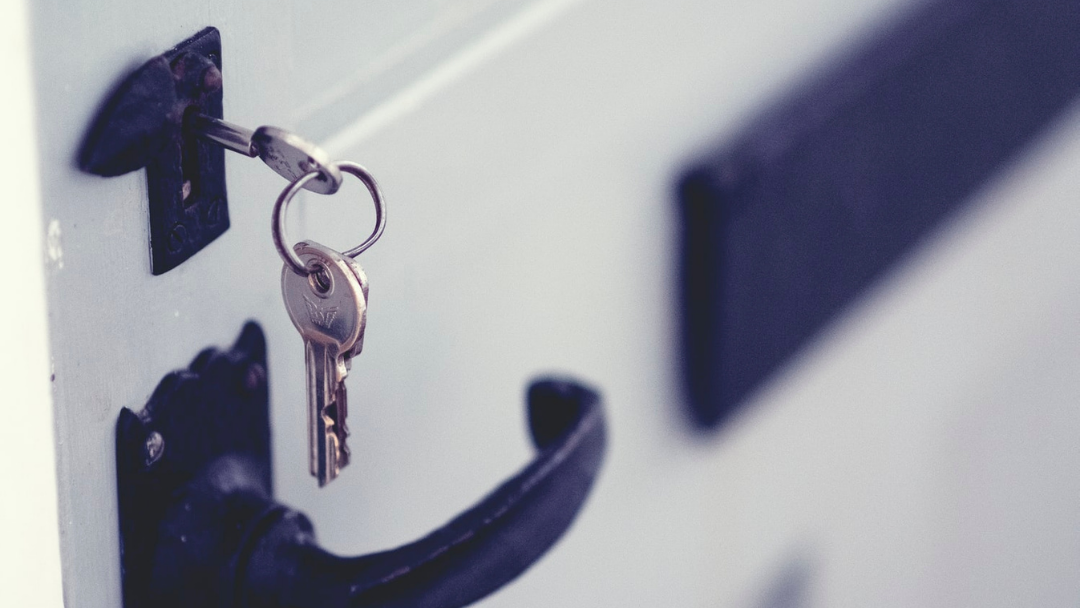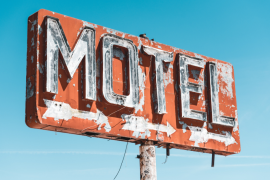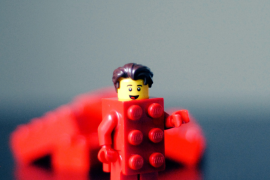SOMETIMES, WHEN DARIO HAS A LATE SHIFT CLEANING TRAINS AND I GO WALK ON THE SEAFRONT, I SEE BLACK FIGURES AGAINST THE SUN. They stand on paddleboards, pushing an oar, but they actually look like they’re walking on water. Like Jesus.
I know I shouldn’t be saying Jesus’s name. My mother always told me, “if you don’t believe in him, at least don’t mention him.” But doing things that piss my mom off makes me feel like she’s still alive, for a second. It makes me think that, if I found the strength to get up from the couch, I could grab the phone, dial her number, call her and tell her everything. And she’d tell me what to do – how to disinfect a wound, how to make my nose stop bleeding, like when I was a little girl. She’d tell me how to leave Dario.
But my mother died last spring, and I’m alone.
Since she died and I started noticing the figures on the paddleboards, I have thought of disappearing, like a shipwreck that was never found again. Like the corpse of a whale, waltzing slowly towards the bottom of a black abyss.
I lock the door of the changing room and look for the bruises between the sunburnt folds of my skin. Sometimes I think of tattooing the bruises, like flowers: memories of the summer.
At the launch party of the new soccer season, Dario’s friends, the lads, drink mojitos on the beach, showing off their athletic bodies all clad in fluorescent bathing suits. The first game is a big day.
In the changing room, I wonder if I should get out with my sundress on. I know what Dario’s lads may say. You’re hiding something. Maybe a belly?, and then chuffed smirks, complicit looks. They’ll insinuate that I’m pregnant, or just fat. They don’t know that the truth is much worse.
At night, Dario sleeps and I can finally lie on the couch, eating and watching TV.
I’ve been eating a lot of ice cream, even if I’m lactose intolerant. I have stopped sleeping.
Dario started at the beginning of the summer, around June, as if something just twitched in his brain. I don’t know what happened. Maybe, since my mother died, I have gotten too sad, and I haven’t been the same anymore. I wonder if he knows what’s going on in his mind, but I haven’t had the guts to ask.
Dario says that hitting is a drug. He says I have to understand him as if he was a heroin-addict. He says that, if he were a druggie I’d help him. I’d hold a bucket under his face as he puked, and wipe the bile off his lips.
Instead, I have to tend my wounds, hide in the bathroom, keep my head back and wait for the blood to stop flowing.
When he was younger, Dario played in the underage team of Livorno City. Then, at seventeen, he burst his meniscus as he slide-tackled a guy of the opposite team. The guy had pissed him off. Dario grabbed this dude’s hair, his knee still throbbing and broken, and dragged him to the side of the pitch. Before anyone could stop him, he butt-headed him and knocked his front teeth out. Dario could never play again.
Now, for him, Livorno City is God. When the players get out on the field, the world stops. Sometimes we watch replicas of games on TV, and Dario puts his arm around me, strokes my knees, kisses me. His hands never shake.
I leave the changing room, the keys jingling between my fingers. I hang them up to the lucky charm bracelet that Dario bought me the summer we met.
Yesterday I told him that the last weekends of September are perfect to go on a weekend trip. I thought we could just go and talk and leave everything behind. But he pushed me away, against the wall, grumbling something about the beginning of the soccer championship.
Now, as I push the sundress down on my bruised thighs, I tell myself that I should never say such things, to a true fan of Livorno City.
Every morning Dario wakes up at five, his muscles quivering under his sanguineous skin. Sometimes he grabs me and we have such angry sex that I think he wants to tear me to pieces and chew me up. Some other times, when he’d like to punch someone, or something, I hear him sigh, all tense; I can feel his fingers and legs shaking, the bed soaked with sweat. I keep my eyes shut and pretend I’m asleep.
Often, when he can’t deal, Dario tosses away the sheets, and I feel the cold set my skin on fire. He pushes them so hard that they end up on the floor.
Then, he runs. He takes his bike, goes to the gym, has a two-hour kickboxing sessions; if that’s not enough, he goes to the seafront and jogs, until his need to scrape his knuckles off and sucker punch someone fades away, dissolving like the lactic acid flowing in his muscles. When he’s ready, as if nothing happened, he has breakfast at Baracchina Rossa, on the seaside, with the lads. They talk about soccer, even during the summer, even when there’s nothing to say.
Dario is slouched on the beach chair and he’s chatting with his old friends, “the bleacher lads.” Che Guevara tattoos glimmer on their shoulders. Their limbs are all shiny with tan, like steaks hanging from a butchery’s ceiling. It’s hot; the beach umbrellas are perfectly still. The ladsdrink mojitos and Corona beers, the slices of lime falling on the sand.
The wifes – the lassies– are sitting under the umbrellas, their children all busy warbling and building castles. The lassies talk about baby food, vitamins, reality shows I’ve never seen. They’re all tanned and their skin is perky and toned under in their two-pieces, obviously untied, to avoid tan lines. Indian tattoos, mandalas, and explosions of Japanese flowers decorate their arms and bellies.
I push down the sundress; the keys clink against my wrist bones.
Dario turns to me. I wait for the lads’ comments as they see my outfit.
“Hey. You need to tell us something we don’t know?” someone snorts, as expected.
I don’t say anything, and look straight at Dario.
I know I have gained some weight in the last couple of months. It’s all the ice cream at two am in front of the TV, my only moment of relief.
I know that, instead of watching TV, I should think of a way to leave. A way to disappear.
But Dario knows where I work; he knows I can’t go far. And then I think: at the end of summer. At the end of summer, everything will go back to normal. Dario’s muscles will go back to be satisfied with all the jogging, the kickboxing, the angry sex, the soccer championship.
Soccer stops the world. Soccer stops Dario.
So, instead of making a decision, I sit on the couch, in front of the TV, watching characters that can’t turn back and see a pathetic thirty-year-old eating ice cream until she’s sick. I think of calling my mom, and I realize that she’s gone.
The wright gain is not what I’m hiding under my sundress, and Dario knows it. He doesn’t say anything in front of the lads, though – he clicks his jaw, looks away.
I wonder if he’s ashamed of me, or himself.
Dario’s father was crushed under a container working at the port. Dario was thirteen.
“His head was so squished that they couldn’t even identify him,” Dario had said, the first and only time we talked about it. We were having a slushie, strolling on the seafront. It was our fourth date. My mom was alive, and I had told her about Dario already – she had helped me pick all my outfits for our dates.
The way Dario told me about his father’s death shocked me – as if it was just an anecdote, a random event in his life. Or maybe it was the word “squished”; maybe the way, right after he said that, Dario sucked from his straw and I heard the ice shattering between his teeth. He was crushing it hard, instead of letting it melt on his tongue.
And maybe it was my face, the way I almost let my slushie cup slip from my fingers, how my head jerked towards him. He felt the need to explain himself.
“I never gave a shit,” he said. Then he swallowed the ice. “He used to beat the shit out of me.”
“The first game of the year is absolutely untouchable,” Dario said this morning.
Shouldn’t be ruined. As if the others could.
Today, at two, the ladswill get ready, throw away the rest of the melted ice in their mojitos, close the umbrellas, and dash to the stadium, all worked-up.
The lassies will go back home, their cars loaded with screaming children, the sand slipping between the seats, between the coolers full of leftover rice salad. They’ll go home and make dinner for their husbands, who’ll be too busy screaming, clapping their hands, chanting the Livorno City hymns on the bleachers.
I don’t want to be here. I glance away from the beach, from the lads and the lassies, and then I see it, this big sign hanging on the administration of the beach club. Stand Up Paddleboard: eight euros for an hour. It’s the boards I see when I walk on the seafront, the black figures against the sundown, while Dario is at work cleaning trains.
I don’t even take the time to think about it. I head back to the changing room, back to safety, the keys jingling; I fish my wallet from my handbag.
When I get out and stride towards the office, I feel Dario’s eyes glued on me, sliding on my skin like sweat. I don’t turn to look at him, nor I walk faster, even though I swear my feet are almost crumbling on the boiling sand. After booking, I choose a board and an oar carefully, as if I cared. I just want to take my sweet time while Dario watches me.
I can already picture his face when he sees me walking on water like Jesus.
“Only one hour,” Dario says, his voice apparently calm in front of the lads, but firm enough to tell me that I just have to obey. “We have to go.”
“Okay,” I say, without looking at him.
I have it booked for two hours.
The board hits my calves as I drag it towards the sea. The keys keep clinking against my wrist, but Dario doesn’t see them. He’s too busy staring at me to realize such a small detail – I have the keys for everything. The changing room, the car, the house. A world hanging from my wrist.
Without the keys, Dario can’t store the beach towels, the flip-flops, the wet bathing suit, the sunscreen lotions in the changing room.
Without the keys, Dario can’t get his dry clothes, his soccer shirt, his shoes, his wallet, where he keeps his precious subscription for the soccer games.
Without the keys, Dario can’t get his car and drive to the stadium; he can’t go back home and get his spare car keys or smash everything in anger.
Without the keys, Dario is nothing.
The board is heavy on the ground, but when I toss it in the water, it dashes like an arrow.
My feet sink in the wet sand. The pebbles tickle me; the algae stroke my calves. I push the board against the current, giving me leverage with the oar.
I have to jump, with my fattened legs thrusting up my butt – Dario liked it so much, the summer we met, before everything started.
As I walk towards the horizon, I realize I haven’t taken off my sundress. The thin fabric sticks to my skin like scales. I move on.
After the game, the lads will go celebrate, no matter who wins. They’ll gather with all the other old fans; they’ll go eat fried cod and mussels, and Dario will come home drunk. And I’ll have to wait for him instead of going to my mother’s place to tell her that Dario took a late shift and I don’t want to sleep by myself. I used to do it all the time.
But I have the keys now. They hang from my wrist like cherries as I push the board towards the sun. There’s no breeze; the torrid heat makes my hair stick to my forehead; sweat drops fall from my eyebrows.
I just have to jump.
When Dario hit me for the first time, at the beginning of the summer, he left me breathless. He stormed out of the house, while I stood there, in the kitchen. The air stopped somewhere between my mouth and my lungs.
I opened the fridge, as if the cold could help me.
We had fought about something stupid. I didn’t want to have a drink with the lads. I was feeling down, and I just wanted to stay home, order pizza, watch a movie on the couch. I was still grieving my mother’s loss, but Dario didn’t know what that meant.
The cool air of the fridge didn’t help. I squatted on the floor, taking deep breaths, and I thought of calling my mother. Then I cried.
The water is up my belly–I don’t have much time. The more I venture toward the sun, the more difficult it’s going to be to jump on the board. I turn back to look at the beach.
Dario isn’t far away yet. I feel his stare on me. He hasn’t realized I have the keys.
Maybe he expects me to slip on the board and fall in the water. The lads will laugh because, once again, instead of sitting down with the lassies and talking about baby food, vitamins and reality shows, I’ve done something weird, wearing my stupid sundress.
Dario thinks that, after I jump, I’ll collapse spectacularly.
I step forward, feel the tips of my toes struggle to touch the bottom. I booked the board for two hours: I’ll go out to sea. I’ll disappear.
I turn back.
Dario looks at me.
I look at him.
I raise my hand and make the keys jingle.
His face changes.
I jump.
The board swings on the waves and my knees shake.
I hear Dario yelling. I know he’ll try to get in the water, come for me, grab the board, make me fall, rip the keys from my wrist. Doesn’t matter. I plunge the oar in the water, my body against the sun.
The rocks, the sand, the algae glow under my feet.
Like what you’re reading?
Get new stories or poetry sent to your inbox. Drop your email below to start >>>
OR grab a print issue
Stories, poems and essays in a beautifully designed magazine you can hold in your hands.
GO TO ISSUESNEW book release
China Blue by Catherine Gammon. Order the book of which William Lychack Jeffries calls “a fiery declaration of all that is inexpressible about desire and loss and the need to find a home in a world in which even the most solid and real of things feel often less than completely solid or real.”
GET THE BOOK



